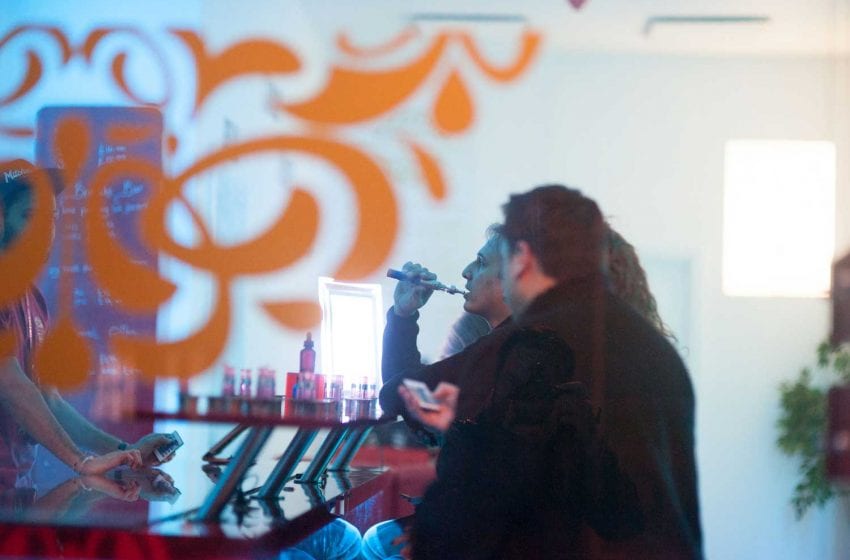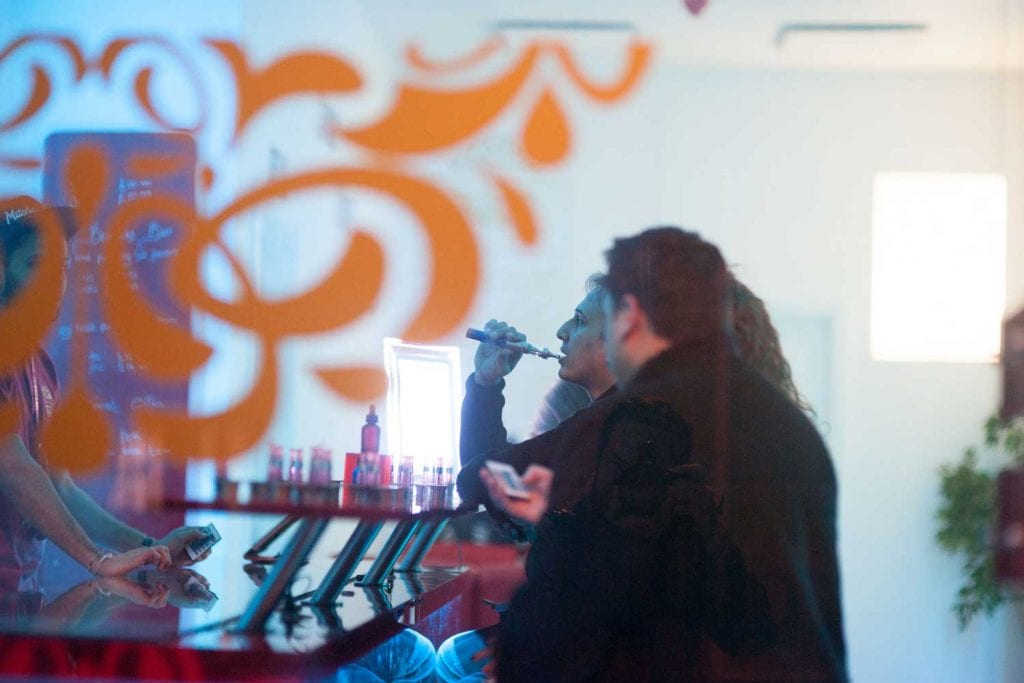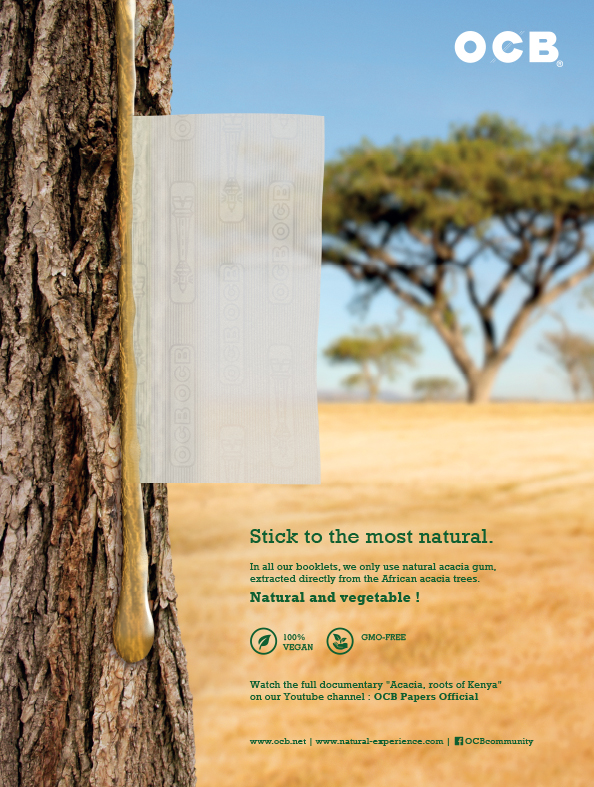Dealing With Disruption
- Also in TR Print Edition
- May 1, 2020
- 0
- 13 minutes read


The U.S. tobacco industry prepares for the “new normal.”
By Kenneth Robeson
The impact of the coronavirus pandemic and economic shutdown on the tobacco industry has been, as with most other industries, both unavoidable and traumatic.
But the shock to its system having been weathered, the business endures. The job now for executives in various segments of the industry is figuring out how best to adapt to the altered landscape that the scourge has left in its wake.
“In tobacco, the short-[term] to medium-term impact is likely to be rather limited, but the attitudinal and behavioral changes engendered—in particular, increased emphasis on lung health, discrete consumption and mood management—will amplify tobacco’s underlying longer term challenges,” says Shane MacGuill, senior head of tobacco for Euromonitor International.
Time spent in forced lockdown will ultimately result in a variety of outcomes in different markets depending on regulations and traditions, MacGuill suggests, “and may impede consumption in some and facilitate [consumption] in others.” However, Covid-19 is a respiratory illness “and there is increasing focus on whether smoking may be a factor in driving more severe outcomes amongst infected populations. The evidence for this is mixed and unclear currently.”
That and other challenges to various segments of the tobacco business are formidable but will ultimately prove surmountable.

Manufacturers
“Manufacturers are the most impacted as we cannot produce any longer at this time since all the companies, including the ones overseas, are shut at this moment,” says Ed Kashouty, the owner of cigar maker Hiram & Solomon, which is based in Nicaragua, has offices in Brick, New Jersey, USA, and distributes across Florida. “We are feeling the same impact on our industry as others, depending on our situation.”
Cigar lounges remain closed in many states, with others operating strictly as pick-up centers. “It is a big loss for the owners themselves,” Kashouty laments. “Our sales force is not working as no sales are coming from cigar lounges. This is something new for us that we [have] never experienced before, so we have no plans at this moment besides surveying day by day.”
Like their counterparts in other industries, tobacco companies are stepping up to do their share. Altria Group announced in late March that it had committed $1 million to support immediate local coronavirus relief efforts in its headquarters’ community of Richmond, Virginia, and its other manufacturing and grower communities. “This is an unprecedented time, and it’s critical that businesses step up to meet the challenges in the communities where we live and work,” said Billy Gifford, Altria’s vice chairman and chief financial officer, in a statement. Executives have also made a commitment to pay manufacturing employees their regular base wages during a temporary two-week suspension of certain plant operations and to evaluate additional pay continuation beyond that timeframe as needed.
In an online statement, Japan Tobacco International USA in Teaneck, New Jersey, noted that it is taking precautionary measures “beyond government restrictions and [has] put in place additional health and safety processes in all [its] supply chains, R&D centers and distribution networks to make sure we protect our employees and reduce the risk of disease transmission in every area of our business.” Executives promised that they are “taking every possible step, within local restrictions, to minimize business disruption and the adverse effect it could bring to communities, consumers and our customers around the world.”
Retailers
For convenience stores, a major channel for tobacco products, the key is adaption.
“You only have to look out your window to see that there are fewer drivers on the road,” notes Jeff Lenard, vice president of strategic industry initiatives for the National Association of Convenience Stores in Alexandria, Virginia. “That naturally places challenges on convenience stores that often cater to time-starved commuters or those seeking a quick pitstop off the highway.”
With so many fewer drivers, Lenard continues, there has been “a huge transition from immediate consumption and impulse purchase—83 percent of the items purchased at a convenience store are consumed within the hour—to a planned excursion that is as much to stock up as anything.”
Convenience stores have seen a decrease in fuel sales and in-store traffic, Lenard continues, “but for now, tobacco sales have largely held. However, those impulse sales that went along with the tobacco customer are decreasing.” He concedes that it is difficult to predict how future sales will play out “with new restrictions announced on a daily basis by local, state or federal officials.”
The coronavirus has impacted tobacco in a couple of ways, suggests Erin Breeden, merchandising manager for Hat Six Travel Center in Evansville, Wyoming. “First, when the people were panic buying, they did not leave out their tobacco. They overbought and bought us out of almost all main line items. Secondly, we were impacted when the Altria packing plant closed, and allocations were put on all our distributors.”
Eric V. Patterson, merchandising manager for Beacon & Bridge Market in Flint, Michigan, says he expects the industry to see “some pretty soft numbers” for the next several weeks. “The first week that there was major public reaction to the coronavirus, we saw an uptick in tobacco sales from people panic buying. However, sales have since declined over the prior year because our everyday customer is making fewer trips—lack of need along with the shelter-in-place-order.”
Patterson sees sales stabilizing and potentially increasing in the convenience store sector the longer the country keeps nonessential businesses closed. “The reason I say that is because one of our primary competitors in the tobacco category, tobacco/cigar shops, are not considered to be essential businesses.”
Steve Sandman, who earlier this year joined Pixotine Products as chief operating officer, agrees that consumers are stocking up on essentials, “and nicotine users consider their product of choice essential. We’ve seen explosive growth in Pixotine Nicotine toothpicks as [consumers] are able to use them inside their homes during the lockdowns that are occurring.”
Sandman says it is important that retailers carry “more-than-usual inventories as folks stock up and use more products as their daily routines are unusual now.” He adds that the industry “could see more sales declines in vaping and cigarette smoking due to the increased risk associated with the coronavirus.”
Tobacco sales are down around 20 percent, reports Debbie Divine Cornell, manager of retail operations for Divine Corp. in Spokane, Washington, and she does not see a turnaround happening any time soon. The family-owned company, founded in 1956, operates a dozen Fasmart convenience stores across the greater Spokane and Spokane Valley areas.
Cornell and her colleagues are keeping tobacco orders to a minimum and have more “other tobacco products” (OTPs) available, most notably ZYN, the smoke-free, spit-free, tobacco-free nicotine pouch produced by Swedish Match. “I think it may push to more consumer OTP products,” she said. She recommends that retailers lower their prices for the time being. Overall, she favors “lower prices and increased back-end money for retailers” as well as “increased promotional buy downs on top sellers.”

Supply chain
Supply chains have been and continue to be disrupted significantly, Ryan Mathews, president of Black Monk Consulting in Eastpointe, Michigan, points out. “Distribution points are closed. Drivers are getting sick. Warehouse workers are not immune to Covid-19, and all that will continue to have a negative domino effect. Supply may be interrupted, but the real issues will be cost, ease of access and, I would assume, a degree in new products. And that doesn’t even begin to address decreased demand.”
In structural terms and for the near future, says MacGuill, there is sufficient manufactured product in global supply chains to withstand even lengthy periods of production shutdown, “at least with regard to the predominant cigarette category.” On the demand side, the bulk of tobacco consumption is not discretionary, “and therefore the majority of tobacco consumers will continue to use it at some fundamental level, even if there is an element of moderated behavior.”
Ahead
Unfortunately, the effects of the coronavirus will almost certainly outlive the pandemic itself.
“It would seem to me that since both [the] corona[virus] and tobacco attack the lungs, the pandemic isn’t likely to be too good for the industry,” Mathews suggests. Executives, he adds, also have to look at their customer bases.
“Drive by any food service operation or high school or bar and you will see bunches of smokers huddled together, pariahs from the nonsmoking world,” Mathews says. “Well, those food service workers are underpaid to start with, and many aren’t working, and the high schools and bars in many states are closed. So the money to buy the product and the venues to enjoy it have both suddenly become more limited.”
Normal, says Mathews, “isn’t even on the horizon yet, so I wouldn’t bet too much that it will come charging back to save the industry.” He calls it too late for contingency planning. “Elvis has left the building. Much better to focus on new strategic thinking.” The industry’s wisest approach going forward, he hints, might be a more subdued one. “In a regulatory world where everything is up for grabs and all eyes are focused on the virus and public health, it might be best to keep a lower profile.”
“Surely,” says Kashouty, “for a few months, we are going to see the worst and are hoping for the better. All our future projects are on hold now as all manufacturers are closed, and we fear that some will not be able to ever open again.”
Supply chains from China and South America are shut tight, he adds. “Few shipping channels are still operating with major delays in delivery times.” Thus far, there has been only minimal impact on consumers “as they are still getting what they need from either supermarkets or online sales.”
Over the next few years, the most significant fallout from Covid-19 in the tobacco industry will come from the severe economic downturn it will cause, MacGuill points out. “Additionally, in a wider sense, permanent changes in consumer behavior such as purchasing patterns and the inhabitation of public and private spaces could have a substantial impact on tobacco and nicotine use.”
MacGuill feels there is a “significant” likelihood that the crisis “will drive demand for other substances beyond, and in competition with, nicotine.” In addition, companies should be aware of the likelihood of temporary changes in regulation, “particularly around supply and distribution, permanently becoming part of a post-Covid reality.”
Smoke shops will suffer the most, Patterson suggests, because they were not judged to be essential businesses and will lose share to both convenience stores and dollar stores. Still, he remains optimistic about the future.
“Once major tobacco companies are back to full operational status,” he concludes, “I think the disruption will go away.”


